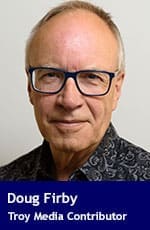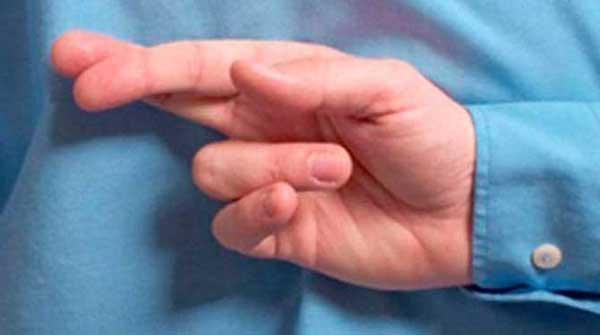Smith’s COVID inquiry and Trudeau’s foreign interference probe are masterclasses in deception

For interview requests, click here
Two recent government reports highlight how a party leader can shape the outcome of an investigation to align with their desired narrative by setting the rules and selecting who conducts the work.
In both cases, public trust in the findings is low. If anything, the contentious—and in some cases outrageous—claims reinforce suspicions that something nefarious is afoot.
The first is the public inquiry into foreign election interference, chaired by Quebec Court of Appeal Justice Marie-Josée Hogue. The Hogue report found no evidence that traitors in Parliament are colluding with hostile states against Canada’s interests.
Hogue wrote she is “not aware of any federal legislation, regulations or policies that have been enacted or repealed on account of foreign interference.”
The second is the task force commissioned by Alberta Premier Danielle Smith to review the province’s COVID-19 response.
 How governments manipulate inquiries to hide the truth. |
| Recommended |
| How the media spreads government misinformation at the public’s expense
|
| A compliant media is complicit in spreading propaganda
|
| Are you lying or is your eye just itchy?
|
Among its more controversial recommendations are ending COVID-19 vaccinations for healthy children and teenagers, allowing physicians to prescribe alternative treatments such as ivermectin and hydroxychloroquine, and introducing an opt-out mechanism from federal public health policies.
“The COVID-19 vaccines were not designed to halt transmission of the virus and there is limited data on their effectiveness in preventing severe illness in children,” the report states.
As if.
Both reports are clumsy attempts to gaslight the public. A loud guffaw rippled across the country as soon as they were released. Common sense tells us these reports—whether through naivety or darker intent—are full of malarkey.
The Hogue report immediately sparked a backlash from pro-democracy groups. Friends of Hong Kong, a non-partisan diaspora group, condemned it as a whitewash, accusing Hogue of “wilful blindness” in characterizing foreign interference as “isolated cases.”
“Judge Hogue and her counsel lack expertise in how the Chinese Communist Party thinks and operates,” said group leader Ivy Li. “They will easily be manipulated in the whole process by Chinese Communist Party proxies.”
Friends of Hong Kong also noted that Hogue previously worked at a Quebec law firm with ties to Pierre Trudeau and Jean Chrétien, both of whom had political and business connections to the Chinese Communist regime.
Democracy Watch called the recommendations incomplete—“mostly a cover-up.” Co-founder Duff Conacher said the report’s recommendations are too weak to stop interference because they ignore a “dirty dozen” loopholes that make secret, unethical foreign interference easy to get away with.
The report “ignores the significant likelihood that foreign governments, and foreign businesses and other entities (which the inquiry didn’t even consider) use multiple proxies to obscure that they are funding or supporting interference activities,” Democracy Watch stated.
Smith’s COVID-19 report has faced even sharper criticism, and for good reason. (As a side note, the government released it on a Friday afternoon when public attention was elsewhere.)
Dr. John Conly, former head of medicine at the University of Calgary, demanded his name be removed, explaining, “I’m a big promoter of vaccines.”
The Canadian Medical Association and the Alberta Medical Association dismissed the $2-million project as “misinformation.”
“This report is anti-science and anti-evidence. It advances misinformation. It speaks against the broadest and most diligent international scientific collaboration and consensus in history,” Alberta Medical Association president Shelley Duggan said in a statement.
Canadian Medical Association president Dr. Joss Reimer added, “This report … has the potential to create mistrust of the medical and scientific communities.”
The inquiry’s chair, Dr. Gary Davidson, is seen as far too partisan. The former chief of emergency medicine at Red Deer Regional Hospital Centre, he downplayed COVID-19’s impact during the height of the pandemic. The 12-member panel included Dr. Jay Bhattacharya, a U.S. critic of COVID-19 policies and Donald Trump’s pick to lead the U.S. National Institutes of Health. Conspicuously absent: Dr. Deena Hinshaw, Alberta’s former chief medical officer of health. The omission speaks volumes.
“This is a report written by individuals who clearly had an agenda, who did not want it to be peer-reviewed,” Dr. Brian Conway, medical director of the Vancouver Infectious Diseases Centre, told Global News.
How does that compare with the appointment of Marie-Josée Hogue to the foreign interference inquiry? While her selection was less controversial than Davidson’s and even won opposition support, critics noted that she lacked national security experience, limiting her ability to provide deep insights.
It’s also reasonable to assume Prime Minister Justin Trudeau was looking to buy time, perhaps hoping public anger over foreign interference would fade.
Governments that commission biased inquiries should remember that we live in an era of deep suspicion. Public trust in institutions—especially government—has eroded.
A Proof Strategies survey found that trust in government stands at 37 per cent—lower than NGOs (50 per cent), news media (43 per cent) and small business (42 per cent). Only big business fares worse.
That should serve as a warning.
Doug Firby is an award-winning editorial writer with over four decades of experience working for newspapers, magazines and online publications in Ontario and western Canada. Previously, he served as Editorial Page Editor at the Calgary Herald.
Explore more on Fake news, Lying, Trudeau government, Smith government
Troy Media is dedicated to empowering Canadian community news outlets by providing independent, insightful analysis and commentary. Our mission is to support local media in fostering an informed and engaged public by delivering reliable content that strengthens community connections, enriches national conversations, and helps Canadians better understand one another.
